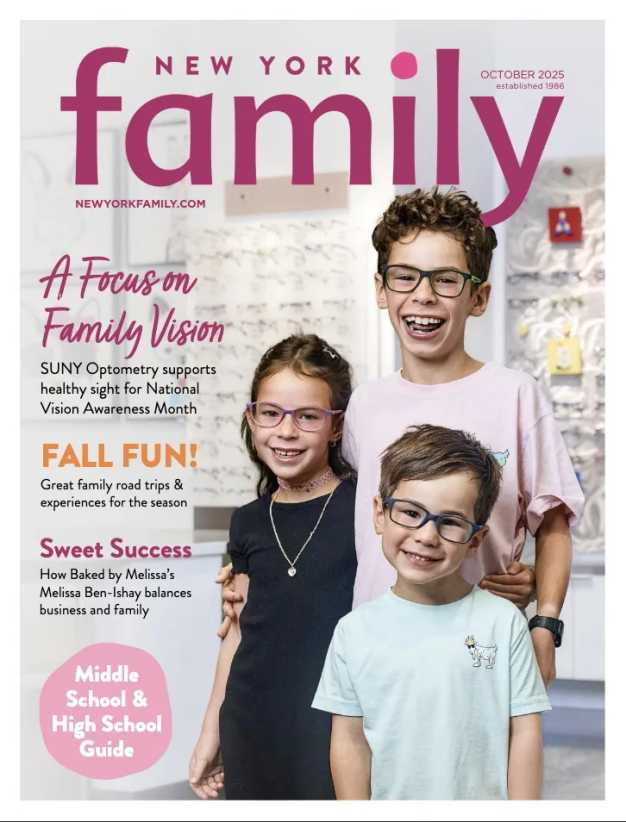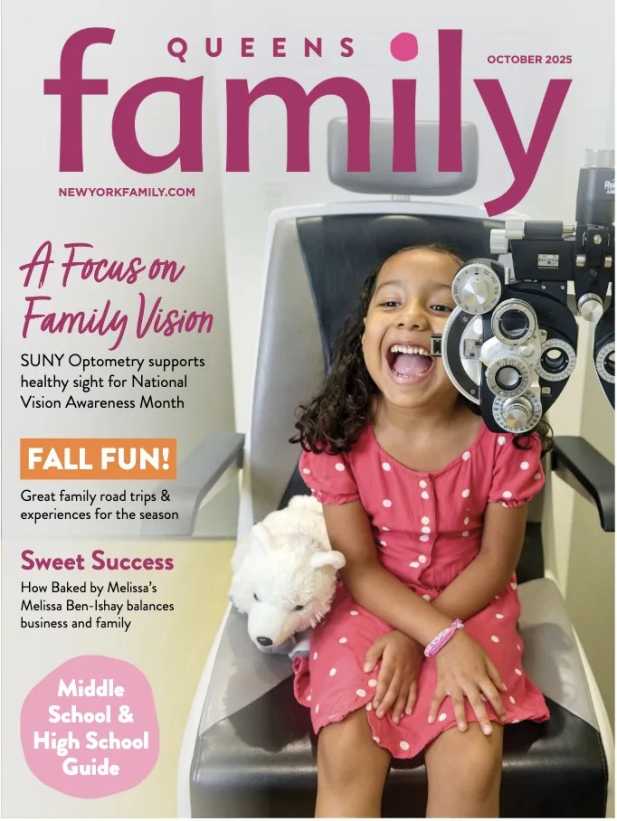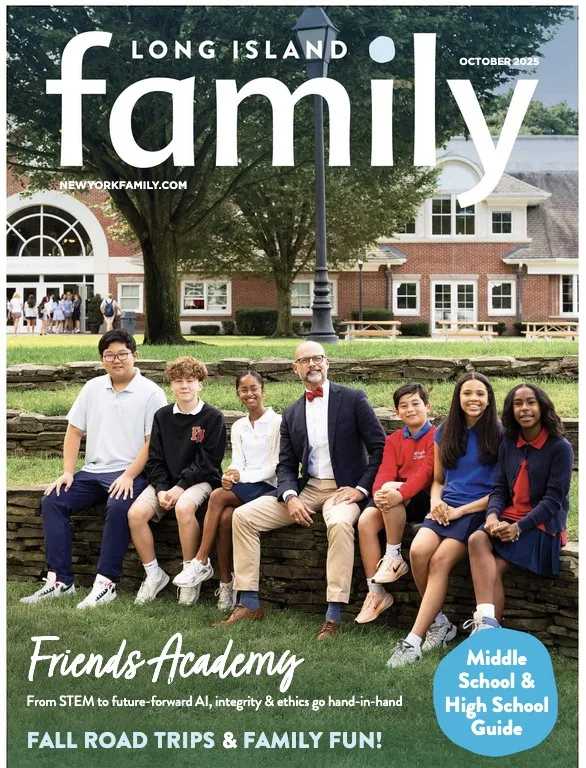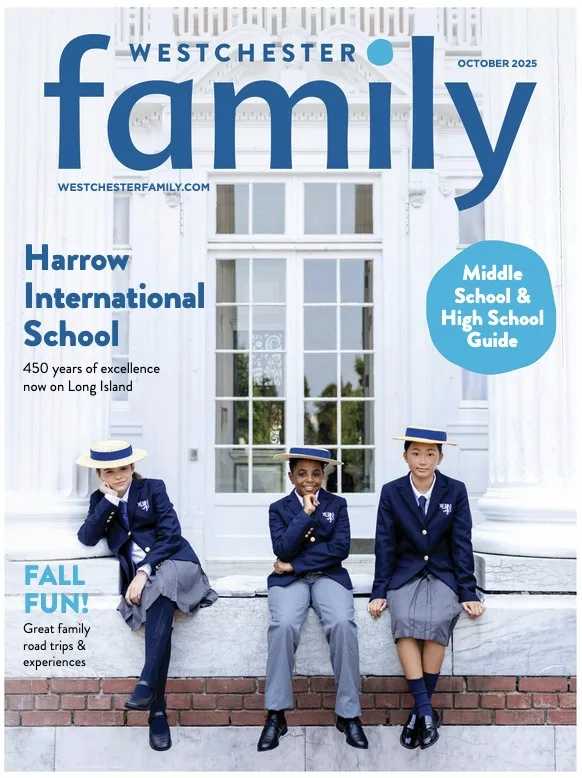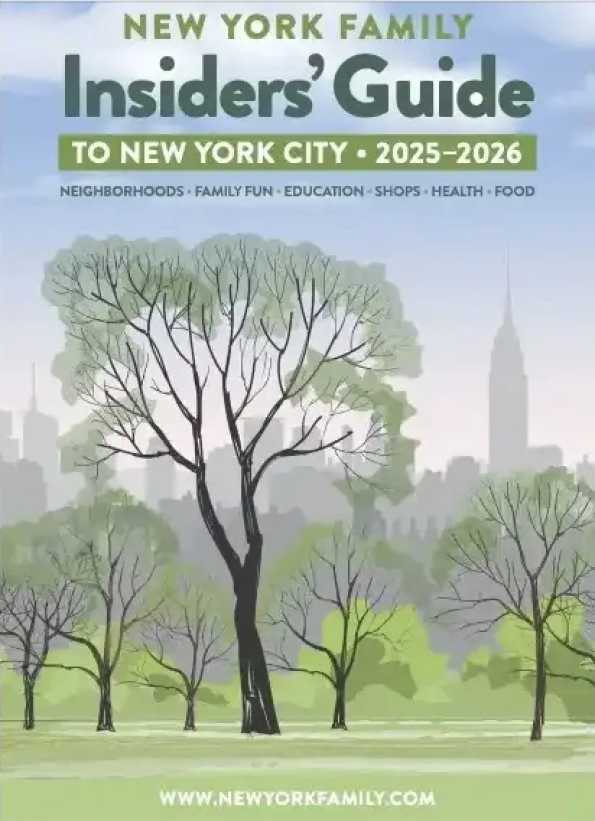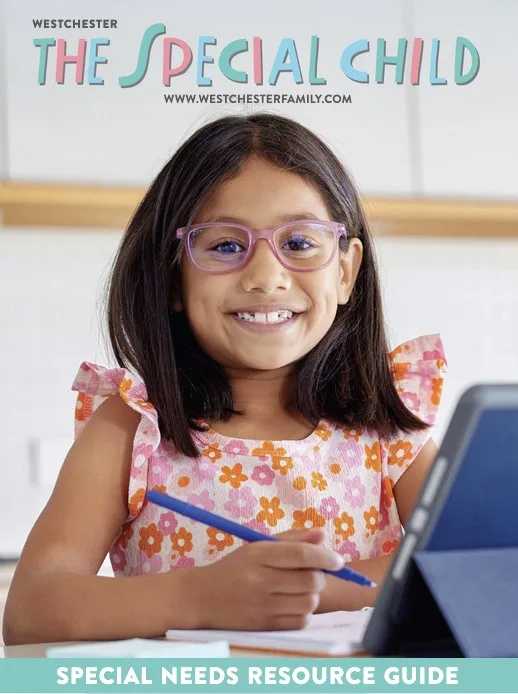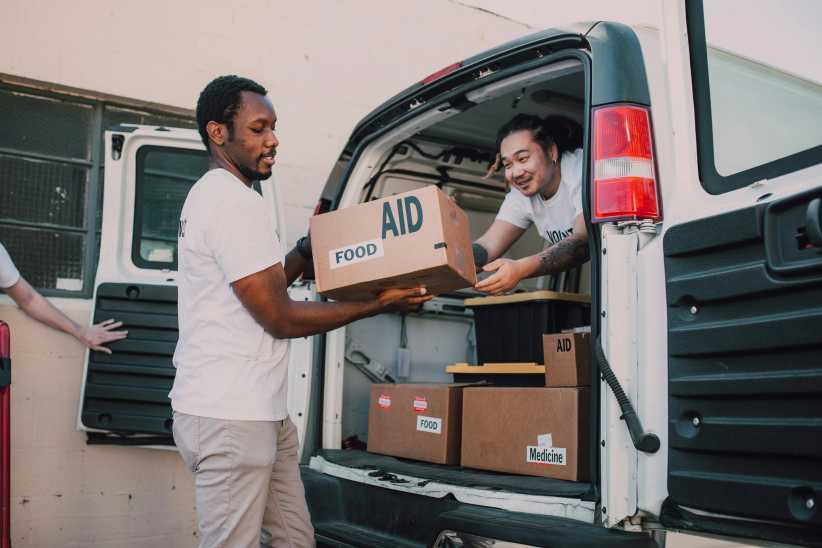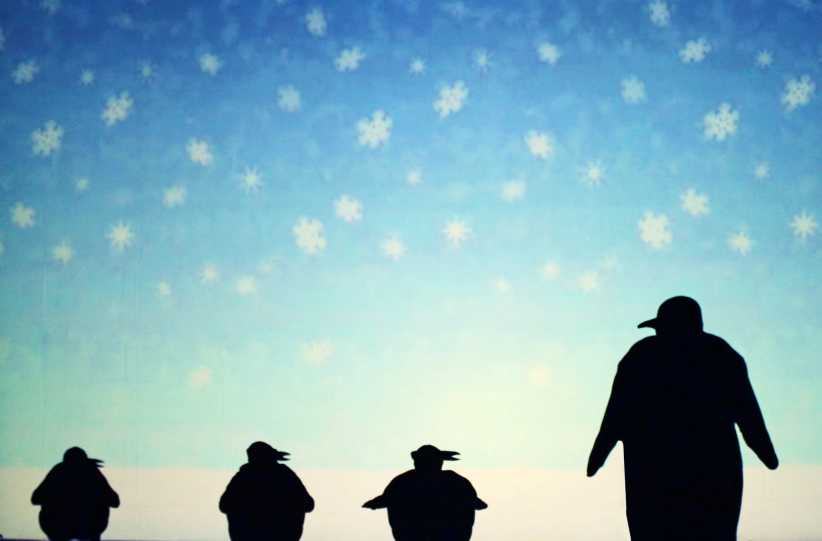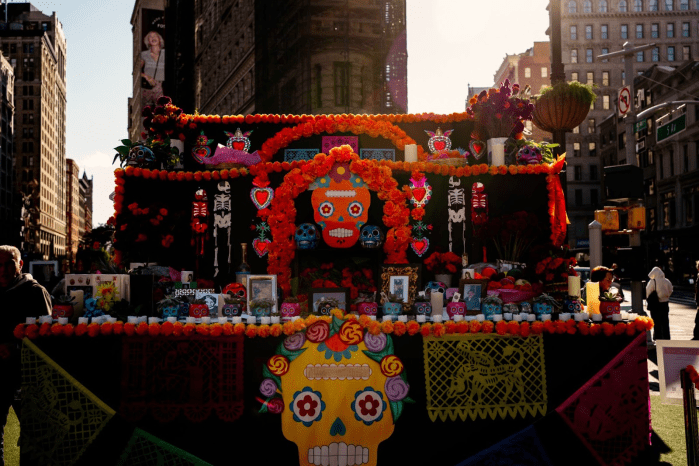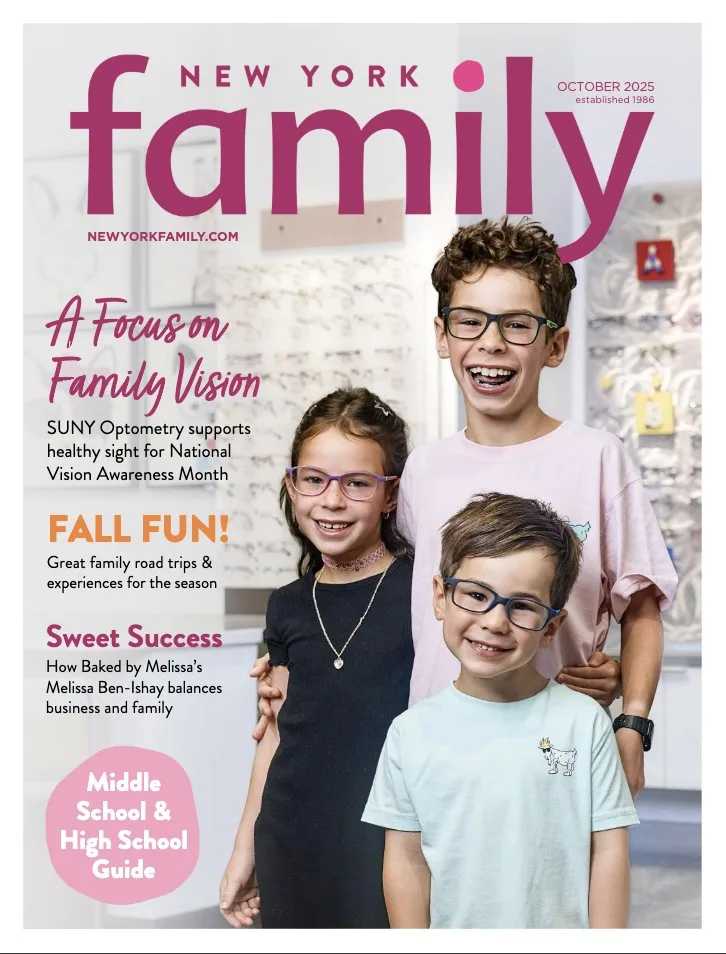For all the problems in the city and the world, there are also a lot of people doing amazing work to help solve them—from teaching students at some of the city’s most under-resourced schools the coding skills they’ll need for professional opportunities in tech, to providing victims of domestic violence with shelter, clinical services, economic empowerment, and the chance for a fresh start. Here are five local organizations making a powerful difference in New York City.

Twenty-three years ago, Lynn Schnurnberger, the founder and executive director of Foster Pride, was looking into child adoption. When she visited a New York City foster care agency for the first time, she was disappointed to see children with little to do as they waited for a visit with either their birth parents or social workers. Urged by a friend to act on her dismay, Schnurnberger, an artist and writer who has worked as a special consultant in education at the Metropolitan Museum of Art and is the founding director of the Cloisters Summer Workshop Program, applied for a small, $5,000 grant, and soon created Foster Pride: A weekly art class that provided children with a creative outlet as they learned to express themselves, connect with others, and to aspire for a different way of living.
From age 2-21, foster children can enroll in Foster Pride’s classes and programs, taught by working artists, many of whom have MAs in early childhood education. There is no fee and no application required; the child’s social worker can simply call and if appropriate, Foster Pride will try to find a private art class or Foster Pride teen program, or try to set up a class or program for a group of children at their home facility. Foster Pride currently works with five foster care and family service agencies to across the city to run 12 programs.
Apart from its foundational “I Made it Myself” art classes—which teach art and visual literacy skills to elementary and middle-school students—Foster Pride offers a variety of programs and events for children to further hone their artistic skills, and enhance analytical thinking and problem-solving along the way. The Teen Mentoring: HandMade program teaches teen girls to crochet, and under the guidance of industry professionals, the students learn how to become entrepreneurs, designing and marketing their own products. The crocheted goods are now sold in New York boutiques and on Etsy through the label HandMade by Foster Pride, and the girls keep the profits from their sales. In fact, on December 13, there will be a sale of their work at American Eagle’s Don’t Ask Why shop in SoHo. The organization also presents Show ON!, an annual art show that highlights student work at prestigious locations such as the National Arts Club and Lever House Gallery; and even provides a teen mentoring workshop focused on money-management, in which students are provided with a monthly stipend.
Because of Foster Pride’s focus on providing a loving environment for its children through mentors that stick by each child, Foster Pride maintains long-lasting relationships with many of its students.
Schnurnberger recalls one such bond with a student named Sammy: “We met [Sammy] when he was nine, and he was failing out of school.” she recalls. “He went on to graduate college, and we danced at his wedding two years ago. He [even] had his first child, and we think of that as the first Foster Pride grandchild.”
Statistically, the outlook for foster children is grim: According to statistics for children in foster care listed on Foster Pride’s website, 50 percent of foster children nationwide won’t graduate high school, and 70 percent will end up on food stamps. Through helping NYC foster children beat these odds is often challenging, seeing Foster Pride students impact their communities in a positive way reinforces Schnurnberger’s commitment her work.
“That year [during Hurricane Sandy], the [teens in the HandMade program] were getting ready to have a sale of their crocheted goods,” she recalls. “That would have meant money for them to spend or to buy Christmas gifts. They decided across the board that what they wanted to do was donate [the products] to people who needed them.”
–Maxine Bogle
In a city often touted for its past two decades of plummeting crime rates, it might come as a surprise that, according to statistics reported by the Mayor’s Office in 2013, the New York Police Department receives more than 750 calls per day for cases involving domestic violence.

“That [statistic] even surprised me, and I’ve been doing this work for my entire career,” says Judy Harris Kluger, the Executive Director of Sanctuary for Families, a leading service provider and advocate for New Yorkers who have been victims of domestic violence, sex trafficking, or other gender violence. Kluger, who prior to joining Sanctuary for Families nearly two years ago, served 25 years as a New York State Supreme Court Judge and was a founding member of the Brooklyn DA’s domestic violence and sex crimes unit, has unfortunately seen firsthand much of the devastation domestic violence can wreak on families and children.
“It crosses all class, ethnic, racial, religious, and economic strata,” she says. “It’s not something that is defined by poverty.”
However, at Sanctuary for Families—which, for 30 years, has served more than 10,000 New Yorkers annually (and in the 2014-2015 fiscal year, they reached nearly 15,000 New Yorkers through direct services, and 40,000 more through outreach, training, and advocacy)—clients receive the shelter, clinical, legal, and economic empowerment services they need for free. Therefore, the organization is a life raft for New Yorkers who may lack the resources to leave an abusive partner or keep their children safe from an abuser: 86 percent of all clients live in poverty, and, as of the 2013-2014 fiscal year, 77 percent are immigrants. With a full-time staff of 200, Sanctuary for Families operates out of 19 offices and shelter locations across the city. Many clients are referred to Sanctuary for Families through help lines and the New York Family Justice Centers run by the Mayor’s Office to Combat Domestic Violence; Sanctuary also has full-time case managers assigned to NYCHA housing facilities around the city.
For Sanctuary, children are a key piece of the puzzle in breaking the cycle of domestic violence—the organization was one of the first agencies to provide services specifically for children exposed to domestic violence.
“We recognized pretty early…that children who witness abuse are also victims,” Kluger says. “Even if they are not specifically abused themselves, this is what they see in their homes, and there are all kinds of ramifications… [If] this is how you see your mother being treated, then perhaps if you’re a young girl you would think that’s the appropriate way for a partner to treat his partner; and if you’re a boy, there’s a cycle of abuse that really continues intergenerationally.” To help mitigate the immediate impacts of domestic violence on children and help prevent future cycles of abuse and victimization, Sanctuary offers a robust slate of children and youth services programs, such as counseling using developmentally appropriate methods such as play and art therapy; volunteer tutors who provide academic support; childcare while parents meet with counselors and lawyers; educational and cultural trips for parents and children; an afterschool enrichment program for high-risk teens; educational advocacy; and parenting support groups and workshops.
As Sanctuary continues to expand its reach, Kluger says they’re currently focused on growing their intensive job training program, which helps clients secure above minimum wage jobs to help them live independently and safely away from their abusers, and deepening the scope of their work with children.
“We feel [it’s] so significant to address immediate needs of children, and promoting healthy relationships so they do not repeat, either as victims or offenders, what they have been seeing,” she says.
-Lauren Vespoli

Despite the tech industry’s booming job growth—the Bureau of Labor Statistics projects that by 2018, there will be 800,000 new technology jobs—women and minorities are severely underrepresented in the workforces of many of the largest tech companies. Maurya Couvares, co-founder and executive director of ScriptEd, hopes to change that by bringing educational and professional opportunities in tech to under-resourced New York City Schools.
“The lack of diversity in the tech industry means that we have less innovative ideas coming in the tech industry…you need to have a diverse range of people coming up with those ideas,” Couvares says. “And because a lot of people in the tech industry come from the same background, they end up solving problems that are very specific to them. So I think that if we have more people from more walks of life in the tech industry, we would be able to solve more problems.”
Founded in 2012, ScriptEd partners with schools across the city to bring tuition-free programs taught by experienced software developers to high school students. ScriptEd’s classes teach students the fundamental coding skills they’ll need for careers in tech, then ScriptEd helps connect them with internships and other professional experiences needed to build their resumes.
“Our mission is to help students from underserved communities access careers in technology,” Couvares says.
According to new data from the NYC Department of Education, fewer than five percent of New York City’s 1.1 million public school students have the opportunity to learn computer science. At its 30 partner schools, which must have more than 75 percent of students qualifying for a free or reduced price lunch to participate in the program, ScriptEd offers coding classes twice a week, either during the day or after school, for the course of the entire school year.
After students have gained the skills they need—such as building portfolios of web-based JavaScript programs—ScriptEd helps connect them to paid internships in the tech industry to help start their careers. Companies where ScriptEd students interned this past summer include Contently, American Express, J.P. Morgan Chase, Rent the Runway, Thrillist Media Group, Uncommon Goods, and WeWork.
In the 2013-2014 school year, 30 percent of ScriptEd’s students were African American, 43 percent were Hispanic, 24 percent Asian, and 3 percent white; and their 2014 Internship Class was 50 percent female and 50 percent male.
Exposing these students to such careers early on can make a big difference—ScriptEd’s site states that the majority of people who go into STEM fields choose their careers in high school or earlier. For example, ScriptEd’s director of programs and community affairs Rebecca Novak shared a story about Lilibeth, a Latina student from Spanish Harlem. After taking classes with ScriptEd, she interned at Contently, then Getty Images. “As a result of participating in our program, she’s become very passionate about computer science and specifically about creating space for women in the industry. She’s the first in her family to go to college, and she’s currently attending SUNY Stonybrook, double-majoring in computer science and women’s studies,” Novak says.
–Yasmin Merchant

Although 14 years have passed since September 11, 2001, the horror of the day’s terrorist attacks is still etched in every New Yorker’s mind. Tuesday’s Children, a nonprofit organization based in Manhattan, has treated more than 10,000 individuals directly impacted by the events of 9/11, and continues to help families and individuals struggling with the attacks’ lasting impact, as well as people affected by terrorism and war around the world.
“After the events of September 11, there were a lot of communities, Manhattan being one of them, where there were many families impacted,” says Terry Grace Sears, the executive director of Tuesday’s Children. “The nature of this attack left victims’ spouses and children in disbelief.”
Founded just three months after 9/11, Tuesday’s Children initially started as an “event resource organization” where members of the Manhattan community could take children who had lost a parent to 9/11 out for activities such as sporting events or Broadway plays. However, starting in 2002, the organization added programs for victims’ surviving spouses, and in the intervening years has added programs for widowed and military spouses, and other individuals affected by acts of terrorism or war.
“We knew that we needed to have a platform of programs for children, but you don’t have accessibility to the children unless you form trusting relationships with the surviving spouses,” Sears says. “When there has been a traumatic and sudden loss like [9/11], people typically tend to hold tighter to their children. So, we ran programs for surviving spouses such as the life management program to get these widows back on their feet.”
The organization has also developed their own long-term healing model, providing counseling and health and wellness programs for victims of traumatic loss. With their core mission still focused on helping 9/11 victims, in 2008, Tuesday’s Children added Project COMMON BOND to their list of programs. The goal of COMMON BOND is to connect young adults from around the globe who have lost immediate family members from terrorism or war.
“Like all of our programs, it came from the families,” Sears explains. “Kids that had been affected by 9/11 approached us and said they wanted to look at others that have experienced loss.”
Project COMMON BOND is an eight-day program that occurs every summer, during which 65-75 young adults from more than 21 nations—including France, Russia, Palestine, Israel, and Ireland—who have experienced loss due to terrorism or war come together to learn about community building, conflict resolution, and the elements of humanity. Over the course of the program, they participate in classes, therapeutic arts, music, dance, and sports.
“The bond that each of these young adults forms is instant, and it is really profound,” Sears says. “It’s hugs all around, and they stay in touch after the program.”
–Rebecca VanEtten

For Roberta Solomon, director of the Y Roads Center in the Bronx, helping NYC’s disconnected youths—the nearly quarter of a million 16- to 24-year-olds who are neither employed nor in school—is crucial piece in breaking the cycle of poverty.
“Sixteen- to 24-year-olds are our future,” Solomon says.
“New York City is starting to recognize that we should start in preschool, but if we don’t get this age group now, the cycle of unemployment and poverty continues, [and] we’re not getting leaders of tomorrow, we’re not tapping into all of that brain trust.”
First opening in Jamaica, Queens, in 2013, Y Roads Centers are unique because they bring three different partner organizations—the YMCA of Greater New York, Opportunities for a Better Tomorrow, and Department of Education’s Pathways to Graduation—under one roof with the single mission of providing a holistic set of services to disconnected young adults. The Y Roads Center Bronx, which opened in the fall of 2014, is especially unique since the Bronx has the highest rates of poverty and gang involvement and the highest number of disengaged youth in the city.
Unlike other High School Equivalency (HSE) programs, Y Roads Bronx offers a full-day program that in addition to providing basic academic subjects like English and math, also offers courses like business math, public speaking, and computer skills. Other programs include work and life skills groups, a Gay Straight Alliance, service learning, a financial literacy program provided through a partner agency called Neighborhood Trust, and additional groups serving a variety of interests. As Solomon says, the goal is not only to help participants earn their diploma, but also to “help prevent substance abuse, domestic violence, intimate partner violence, promote healthy relationships, help young people learn problem solving, critical thinking, and communication in a non-aggressive manner.”
The Center also hosts corporate networking events, where students can meet with employers like Goldman Sachs, Google, and LinkedIn. Each Y Roads participant is also given a free one-year membership to one of the YMCA’s branches, and the Center also brings members on culture crawls, which have included outings to TED talks and Blue Man group performances.
“Many of the participants have never been outside of the South Bronx,” Solomon says, adding that the Center has taken kids from the Bronx to Central Park for the first time.
When it comes to the Y Road Center results, Solomon says, the statistics are impressive (across both centers, there have been 500 young adults served, with more than half placed in full-time jobs or training programs) but it’s stories of participants like Alisha that give the fuller picture. Alisha, who grew up in Guyana, came to US to finish her education. She was not successful in a traditional high school, came to Y Roads, and within a couple months received her HSE, entered YMCA’s competitive Teen Career Connection program, and was placed as an intern with the Clinton Foundation. She is now currently studying Business Management at Borough of Manhattan Community College.
–Julia Malkyh
